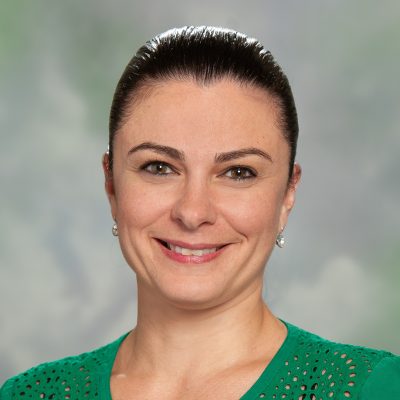9 Civil Discourse
Faten Ghosn
“Unfortunately, civility is hard to codify or to legislate, but you know it when you see it. It’s possible to disagree without being disagreeable.”
Sandra Day O’Connor
I grew up part of a minority group in Lebanon. A country with considerable sectarian diversity and history of civil conflicts, and in a region with seemingly eternal rivalries. A country that was once described as the Switzerland of the Middle East, only to become a country characterized by its lack of civility, violence, and mayhem.
As a child I was displaced with my family multiple times. Like many children of war, most days were spent hiding in a bunker or a family member’s house that was fortified with dozens of sandbags as a cheap protection barrier against bullets and shrapnel. Out of boredom, I recall making up a game whereby I would sneak outside and try to see if I could guess from the sound of the fire tank whether the bomb would hit our town or pass to the next one over. Over time, I got better at the game, but most days I would be caught by my parents and forced to go back inside. On several occasions, while huddling with family members as gunfire and bombs fell around us, I recall asking my parents: why was there fighting? Their response — tailored towards a young child — was that “this is what happens when a brother turns on his brother,” and “even good people sometimes do bad things.”
This background shaped my intellectual and career-long concerns about understanding conflicts, particularly the underlying needs and interests of all sides, and how to best manage them. From Brazil to Denmark to India to Turkey to the United States, we are witnessing democratic backsliding — also known as democratic erosion and autocratization (Hyde 1192). With the rise in polarization and the growth of incivility in public discourse, with “brother / sister / neighbor / friend turning on their brother / sister / neighbor / friend,” we now live in an era of “outrage culture” where emotions and fear run high and where individuals are personally attacked for their views rather than being able to debate their ideas. This is occurring online as well as offline, in our homes and on our university campuses. Consequently, many tend to stay quiet so as to not make a mistake or are quick to reject an idea or fact that does not conform to their views on an issue. In both cases, we all miss out — especially students — on a learning opportunity. But what is civil discourse? Why is it important?
What is Civil Discourse?
Laden maintains that there are two distinct concepts of civility: civility as politeness and civility as responsiveness (9). The former relates to how we act and speak with one another while the latter pertains to the nature of our engagement in a shared political activity and disposition to cooperate with one another.
Why is it Important?
When we vilify one another, for instance calling Democrats “DemoRATS” or Republicans “ReTHUGlican”, or referring to Iran as “the Devil” and the United States as “the Great Satan,” we divide our world into good and evil, and in turn make it harder to feel any compassion or empathy for one another. At the end of the day, we are all human, and we need to remember that understanding what others are going through does not take away from our own needs and concerns. We also need to remember that while needs are not negotiable, the mechanisms of acquiring them are.
In all of my classes, I challenge the simplistic views often found in the media, including social media, pertaining to complicated and controversial issues (e.g., humanitarian interventions, nuclear proliferation), by including not only findings from my own scholarly research, but also by providing a variety of perspectives on the given topic. I believe that for students to develop their analytical and critical thinking skills, they need to examine issues from multiple perspectives. Correspondingly, if students want to take a specific stance on a certain issue, they need to be able to build their arguments in a critical manner. Because of the importance of analytical thinking, I require all students to participate in a debate, oftentimes placing them on the side that they disagree with. The goal is not to compel students to change their beliefs and ideas, but rather to encourage them to further develop their critical thinking and communication skills. This goal is imperative when teaching students about the politics of the Middle East. I aspire to convey to students, through lectures and readings, that there are always two (or more) sides to a story, and to understand a conflict and try to provide the appropriate techniques to resolve it we need to comprehend the positions and perceptions of all actors.
Every time I hear or read about an incident that involves uncivil communication, behavior, or action, I cannot help but think back to my childhood when family members and neighbors turned on one another, wondering if the same will happen here.
Watch Celeste Headlee, 10 ways to have a better conversation.
Works Cited
Hyde, Susan D. “Democracy’s Backsliding in the International Environment.” Science (American Association for the Advancement of Science), vol. 369, no. 6508, 2020, pp. 1192–1196.
Laden, Anthony Simon. “Two Concepts of Civility.” A Crisis of Civility? Political Discourse and Its Discontents, edited by Boatright et al., Routledge, 2019, pp. 9-30.


